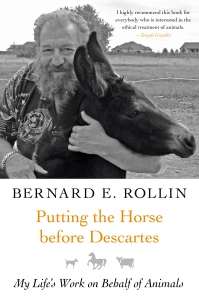Stephen M. Caliendo, who co-authored Race Appeal : How Candidates Invoke Race in U.S. Political Campaigns with Charlton McIlwain, discusses the process of how he and his co-author became involved in The Race Project.
It would only be a slight overstatement to say that my life changed when I met Charlton McIlwain in 2000. My world wasn’t shaken in the way that it was when I met my wife or witnessed the birth of my children, but my professional life over the past decade would certainly have been different had we not both been at Princeton University teaching with the Junior State of America the summer before America’s innocence was lost (again).
We actually didn’t decide to launch The Project on Race in Political Communication that summer. That would happen the following year. But we began conversations about our scholarly interests and our perspective on the state of knowledge in political communication with respect to issues of race. To that point, some excellent work had been done, and some of the biggest names in the field were interested in questions about race-based communication. But to the best of our knowledge, there was no sustained, focused effort to study race in the context of political communication. A combination of naïveté and arrogance must have led us – two untenured junior faculty members – to create the Race Project. “Project?” It was just the two of us, with limited funding from our institutions. Who did we think we were? But we had a vision, a semblance of a plan, good training, and a website. We were off.
 Ten years later, we offer Race Appeal, which is the culmination of the first decade of our work together. Our findings aren’t always intuitive, and while they confirm existing scholarship in many ways, they also point to possible trends that will require closer study in the coming years. Charlton and I will be involved in that work, but so will others. Had we not met that summer, though, perhaps neither of us would be.
Ten years later, we offer Race Appeal, which is the culmination of the first decade of our work together. Our findings aren’t always intuitive, and while they confirm existing scholarship in many ways, they also point to possible trends that will require closer study in the coming years. Charlton and I will be involved in that work, but so will others. Had we not met that summer, though, perhaps neither of us would be.
I spent my childhood raised by Baby Boomer parents who instilled in me a ferocious sense of justice with respect to how I viewed others. There wasn’t a lot of fancy talk about institutional racism, hegemony or patriarchy (let alone heterosexism), but I knew that prejudice was wrong, and I was shielded from overt bigotry. During my years as a member of the Young Republicans of Pennsylvania (I held statewide office during my undergraduate years), where the culture was one of acceptance but a steadfast ignoring of systemic factors that contribute to racial injustice, I had not had my racial consciousness raised. But during those years, I was also listening to Public Enemy and KRS ONE, and I started to have dissonance about the America that I believed gave everyone a fair shot at success. When I heard Chuck D say “I’ve got so much trouble on my mind,” I paid attention. What was I missing? Does race (still) matter (I didn’t experience Cornel West until I got to graduate school)? If it does, how so? And why isn’t it obvious to everyone?
I didn’t study critical race theory in my doctoral program, and while my interest in race-related issues remained high (the O.J. Simpson murder trial took place during that time), my scholarship was elsewhere. But that changed when Charlton and I met. His training and expertise in culture and communication and mine in political science combined in such a way that we saw an opportunity to help advance understanding of those issues.
I am proud of Race Appeal because it offers a complicated, nuanced set of answers to these types of questions. We found that race-based messages are used by candidates of all races. We learned that potential voters – both Black and White – are likely to punish a candidate whom they perceive is “playing the race card” (irrespective of whether there was intent to do so). We saw less racial framing from media sources than we expected. And we found implicit race-based message alive and well in many recent contests (that is, it didn’t all end with Willie Horton). We didn’t try to be “neutral”; we simply let the data guide our story. Activists won’t herald this book as a manifesto, and social conservatives won’t berate it.
That’s not to say that our work is value neutral. As is evidenced by our public appearances and the material that we feature on our Facebook page and Twitter feed, we have a deep dedication to promoting racial justice and increased awareness of the power of systemic racism. We are driven to understand the myriad ways that Americans can be affected by race-based messages, and, as we look forward to at least another decade doing so, we hope that Race Appeal inspires a new generation of scholars to fill in the many gaps that deserve attention and join us, as well as our predecessors and contemporaries, in putting together this extensive puzzle that comprises the intersection of race, politics, communication and psychology.
Filed under: african american studies, american studies, political science, sociology | Leave a comment »





